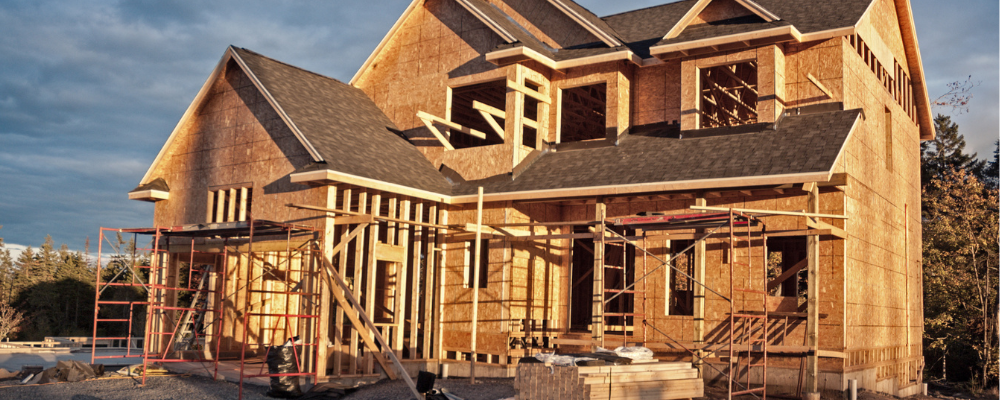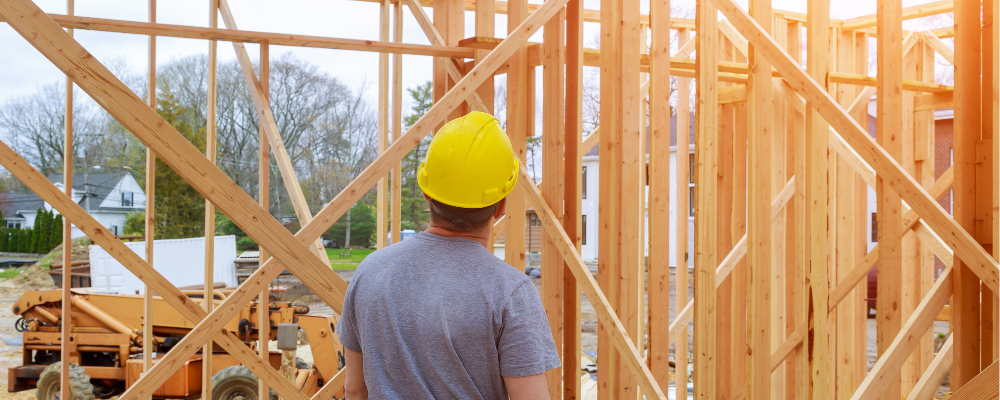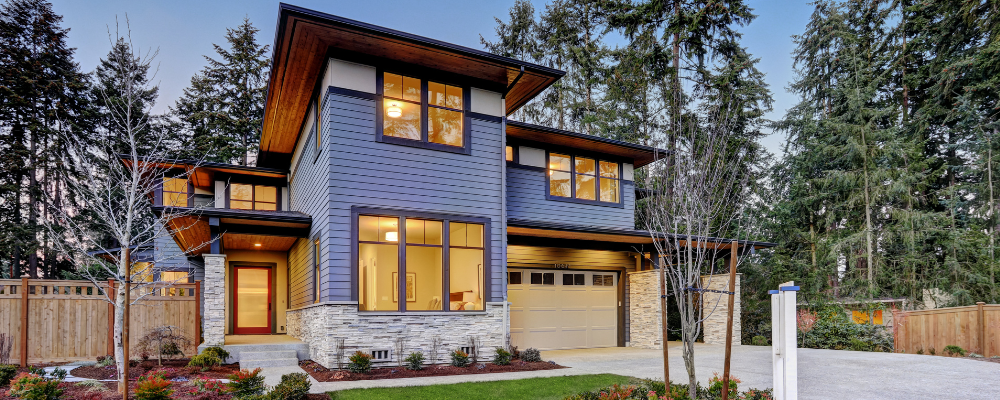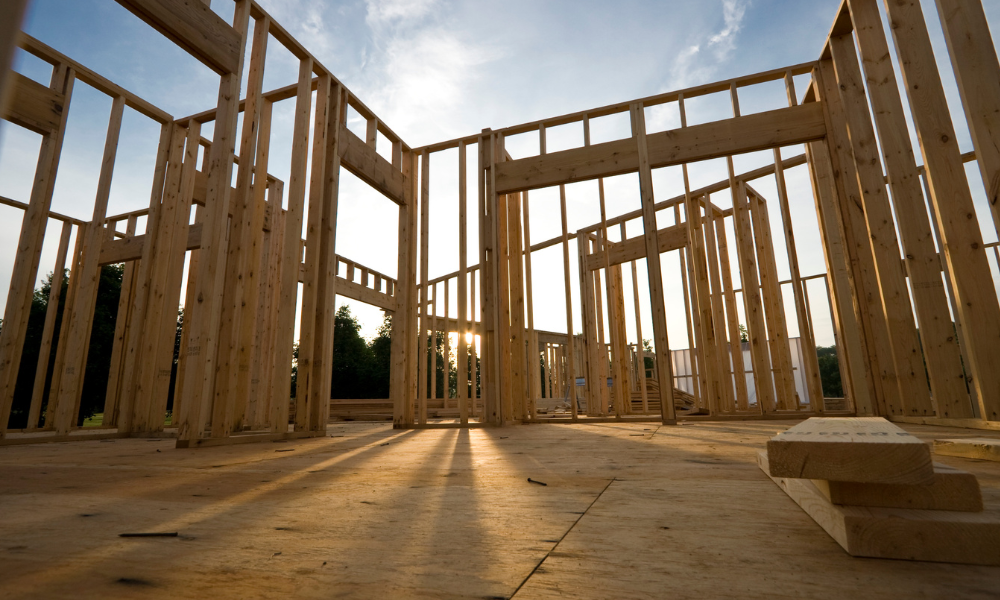The Short Answer
New construction homes can be a good way for new investors to dip their toes into the lucrative pool of real estate. According to the NAHB the number of prospective buyers looking at new construction homes has increased from 20% to 27% over 2022, as these homes become more attractive for investors.
The benefits of investing in new construction homes are:
- Fewer maintenance costs
- Energy efficient
- Customizable
- Warranty protection
- Attractive to renters
- Tax benefits
However, it’s also important to be aware of the pitfalls that exist with investing in new construction homes. Having a clear understanding of these can help investors make the best possible investing decisions. The pitfalls include:
- Longer timeline
- Higher cost
- Limited negotiating power
- Fewer options
- Off-gassing
- Decision fatigue
Jump To
Investing in new construction homes can be a great way to get into the real estate market. The term “new construction” in real estate refers to single-family homes, multi-family properties, townhomes and condominiums. The term also includes homes that are still being planned, where construction has not yet begun.
Investors can either purchase pre-construction homes and flip them once the construction is finished, or they hold onto the property and rent it out to generate an income. Either way, new homes provide an interesting avenue for real estate investing. While this strategy offers many benefits to real estate investors, it also has some drawbacks. We’ll take a closer look at both, as we answer the question, are new construction homes a good investment?
Benefits of New Construction Homes
An estimated 1,553,300 housing units were started in 2022 in the US, according to the government census data. Redfin’s analysis of the data from the U.S. Census Building Permits Survey showed that the cities with the highest number of new construction homes in 2022 are:
1. Austin, TX
2. Raleigh, NC
3. Jacksonville, FL
4. Nashville, TN
5. Charlotte, NC
Let’s take a closer look at the advantages of purchasing new construction homes for real estate investors, to see why this can be an attractive option for many.

Low maintenance costs
New construction homes are built with modern appliances, new plumbing and up to date HVAC systems. This means that the likelihood of the home needing any major repairs or maintenance any time soon after being built is low. New homes are built according to the latest building codes and regulations, which means they are designed to need less maintenance and upkeep.
In the long run this is cost efficient for investors who have purchased new construction homes. So, no repairs or upgrades will need to be made on the home for quite a while after construction has been completed. This saves a lot of money for investors in the long run.
Energy efficient
Older homes typically have insulation that isn’t as effective, and heating and cooling is harder. However, a new home will be insulated well because the new windows and doors will seal effectively, and new appliances and lighting will be more energy efficient.
Technology has come a long way, and the latest advances mean that homes are overall more energy efficient and have lower utility bills. For real estate investors who are renting properties out, this can be a big drawcard.
Customizable
Purchasing a new home gives investors the option to customize the home according to their personal preferences. Existing homes don’t offer this option, without having to change fixtures and fittings. This allows investors the opportunity to choose anything from paint colors to appliances and the home design.
Upgrading an existing home to be suitable for renting, or to include the features that many people are looking for, is a costly exercise. The beauty of buying a new construction home is that you can choose the house you need, without having to pay extra to get it.
Warranty protection
A benefit to buying a new construction home is that they will come with a warranty. Much like buying a new car or appliance, new homes come with a warranty, which means that should anything go wrong during the period of the warranty, the builder will have to cover it. This includes things like a broken water heater and leaking roof.
The warranty on a new home can save investors a lot of money, in the event of something going wrong. This is also something that cannot be offered on an existing home, where investors run the risk of not knowing about any defects until it’s too late and the home has already been purchased.
Attractive to renters
A new construction home is often more attractive to renters, which means that investors should have no trouble finding tenants quickly and therefore generating an income quickly. Renters are usually attracted to the fact that everything is brand new, and the house is extremely clean. It can be a drawcard for tenants to be the first people to live in the house. If there are great neighborhood amenities as well, this is an even bigger selling point.
New homes will typically come with new, modern appliances already installed which is a big drawcard for renters who will have access to a stove and oven, refrigerator, microwave, dishwasher and other sparkly new appliances. There’s also a very low chance of anything needing to be repaired after they’ve moved in.
Tax benefits
Purchasing a new construction home comes with tax benefits that can be a further attraction for investors. If a construction loan has been taken out, investors can deduct the interest on that loan for the first 24 months from their tax. Similarly, mortgage deductions are also applicable in this situation, which means that investors can save a significant amount of money.
Property taxes can also be deducted, and this includes the property taxes that are incurred while the new home is being built. Purchasing a new home, means that there is a higher likelihood of being able to tap into the tax benefits than there would be on an existing home.
Drawbacks of New Construction Homes
While the benefits of purchasing a new construction home can be enticing, it’s also a good idea to consider the drawbacks before deciding if this is the right strategy for you.

Longer timeline
The timeline of completion of new construction homes can be unpredictable, as there are many variables that come into play, so the margin for error and delays is high. Buying an existing home can be a more attractive option as the timeline is shorter, and there are less delays that can occur. New homes can take up to 12 months to be completed, whereas existing homes can be ready to for occupation within 30 to 45 days. This means that existing homes can generate income quicker than new construction homes after the purchase.
Higher cost
New construction home purchases can average around 20% more than the purchase of existing homes, depending on the local real estate market. This may not be advisable for every investor, as it depends largely on their financial situation. New real estate investors, for example, may find a new construction home purchase an attractive idea, however these may not be the best idea as the model homes may not match the home being built, particularly price wise.
Limited negotiating power
When buying a new construction home, there is very little wiggle room when it comes to the price of the property. Builders also need to make a profit on the deal and therefore are not open to negotiating very much. Each upgrade will cost more money, and builders generally won’t decrease the listing price of the property.
Fewer options
When it comes to purchasing new construction homes, builders don’t offer a wide variety of product options and there’s a limit to the level of building materials that are available. New home builders are likely to use their most popular products and building materials, which means that should investors require anything that veers from this, they will need to ask for it, but they may not receive it.
Off-gassing
While many people love the smell of a new home, it can actually be hazardous to your health. Formaldehyde is used to treat the new wood in the home, for example, and there are a variety of other chemicals that can be present. This means that off-gassing from these chemicals can become a problem for the inhabitants of the home. For those who are sensitive to this, off-gassing can be an issue, which means that tenants can be scared off by this.
Decision fatigue
When it comes to the design of a new house, there are many decisions to be made around flooring, lighting, and so on. These decisions can get overwhelming, particularly for someone who hasn’t done it before or who is new to real estate. Decision fatigue can become a problem for investors who need to make a large number of decisions on new homes.
Final Thoughts - Should You Invest In Newly Constructed Homes

Investing in new construction homes can provide many financial benefits for real estate investors – but it also comes with certain risks and potential downsides that need to be taken into consideration before making this type of investment. By having a clear understanding of both the pros and cons of investing in these types of properties, investors can make more informed decisions about whether this type of venture is right for them or not.
FAQ
Although buying a new construction property is often more expensive than purchasing an existing one, it can still provide good resale value due to the modern amenities included. New construction homes are often equipped with the latest energy efficient features, making them attractive to potential buyers who are looking for long-term cost savings.
Additionally, newer homes tend to have up-to-date styling and building materials that require less maintenance over time – another quality that appeals to homebuyers and adds to their market value. While there is no guarantee that every new construction home will have good resale value, these features often make them an attractive consideration for anyone looking for their dream house.
New homes can be priced high, which means that it may take the market a few years to catch up with its value, and from there it can begin appreciating in market value. However, this isn’t always the case. Some new homes that have been built in a growing community will appreciate in value quicker than homes that already existed there. This is also impacted by the neighborhood amenities.
So, there is no blanket answer to this question, as it depends on the home itself, the area and the real estate market at the time.
Constructions costs reached high levels around the time of the pandemic, but the good news is that they’re coming down and in fact they’re set to return to pre-pandemic levels in 2023. Now is the time to look at a new construction property, as this becomes a more affordable and attractive option for real estate investors.



